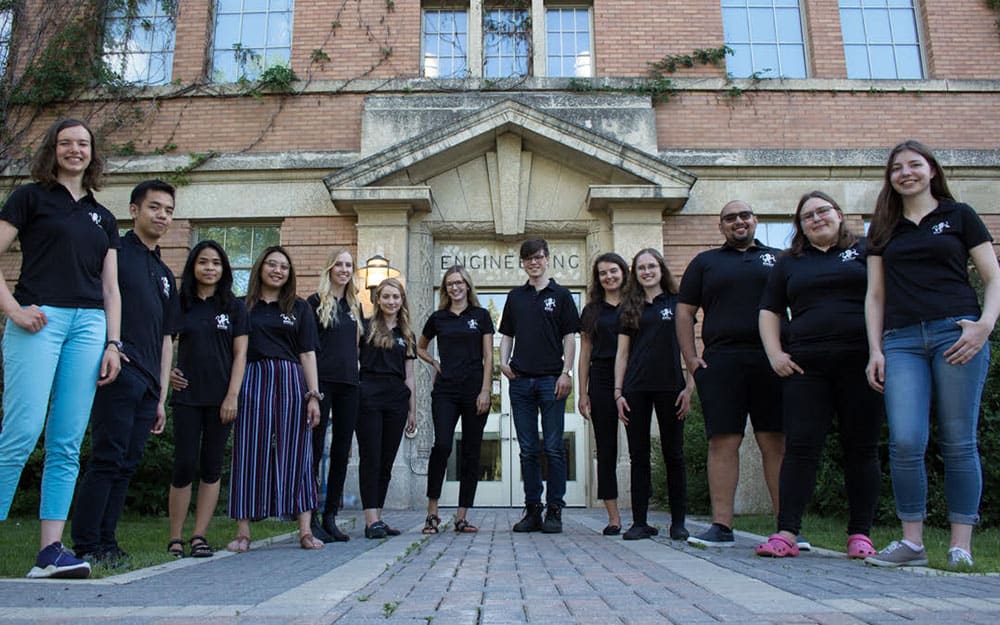Three life-changing assistive devices from university students for wheelchair users and stroke rehabilitation

A team of students from the University of Manitoba in Canada have created three innovative devices that have transformed the lives of their clients, including a wheelchair transfer system and EMG muscle rehabilitation.
The Biomedical Engineering Design (BMED) Team worked on three projects: Wheelchair Transfer, Wheelchair Handwarmer, and EMG Muscle Rehabilitation, taking into account a range of conditions such as stroke and multiple sclerosis.
Wheelchair Transfer Project
This project saw BMED collaborate with a client diagnosed with secondary progressive multiple sclerosis (MS) and an occupational therapist.
The client had lost strength in her right leg and was unable to safely and consistently lift her right foot onto the footrest of her powerchair. This meant that without a safe and reliable method of transferring, the client’s independence would be compromised.
To tackle this issue, BMED designed an automated assistive footplate. Via the touch a button, a linear actuator raises and lowers the client’s wheelchair footplate, significantly reducing the need for the client to lift her foot against gravity to complete the transfer.
Wheelchair Hand-warmer Project
Working in partnership with the team at the Assistive Technology Department at the Health Sciences Centre, BMED designed a temperature regulation device for individuals with muscular dystrophy (MD).
In cold temperatures, MD patients can experience worsening symptoms of muscle weakness and can have trouble sensing when temperatures are too extreme.
In light of this, BMED was tasked with creating a temperature regulation device to allow for safe use of a wheelchair in particularly cold temperatures.
Using temperature sensors, the team designed a bespoke hand-warmer which automatically regulates the temperature inside the warmer based on the outside temperature. If the outside temperature is below the set minimum temperature, the device will turn on, allowing voltage to pass through to the fan and heater.
The constant automatically fluctuating heat prevents the client from becoming too cold or overheating.
EMG Muscle Rehab Project
Finally, the EMG Muscle Rehab Project is a research-based venture between BMED and the Graduate Biomedical Engineering program at the University of Manitoba. It was established to assist individuals with paralysis or weakness of muscles as a result of a stroke.
The rehabilitative process for stroke patients can be long and frustrating, notes the University, causing patients to become disengaged and leading to poor outcomes.
To help tackle this issue, BMED is in the process of developing a device that allows users to interact with a computer, playing various games and activities, using their voluntary muscle activity. The current prototype successfully measures extensor (biceps) muscles to produce musical notes using a test bench.
Final goals include creating a portable enclosure for the device and to integrate the prototype with a computer.

